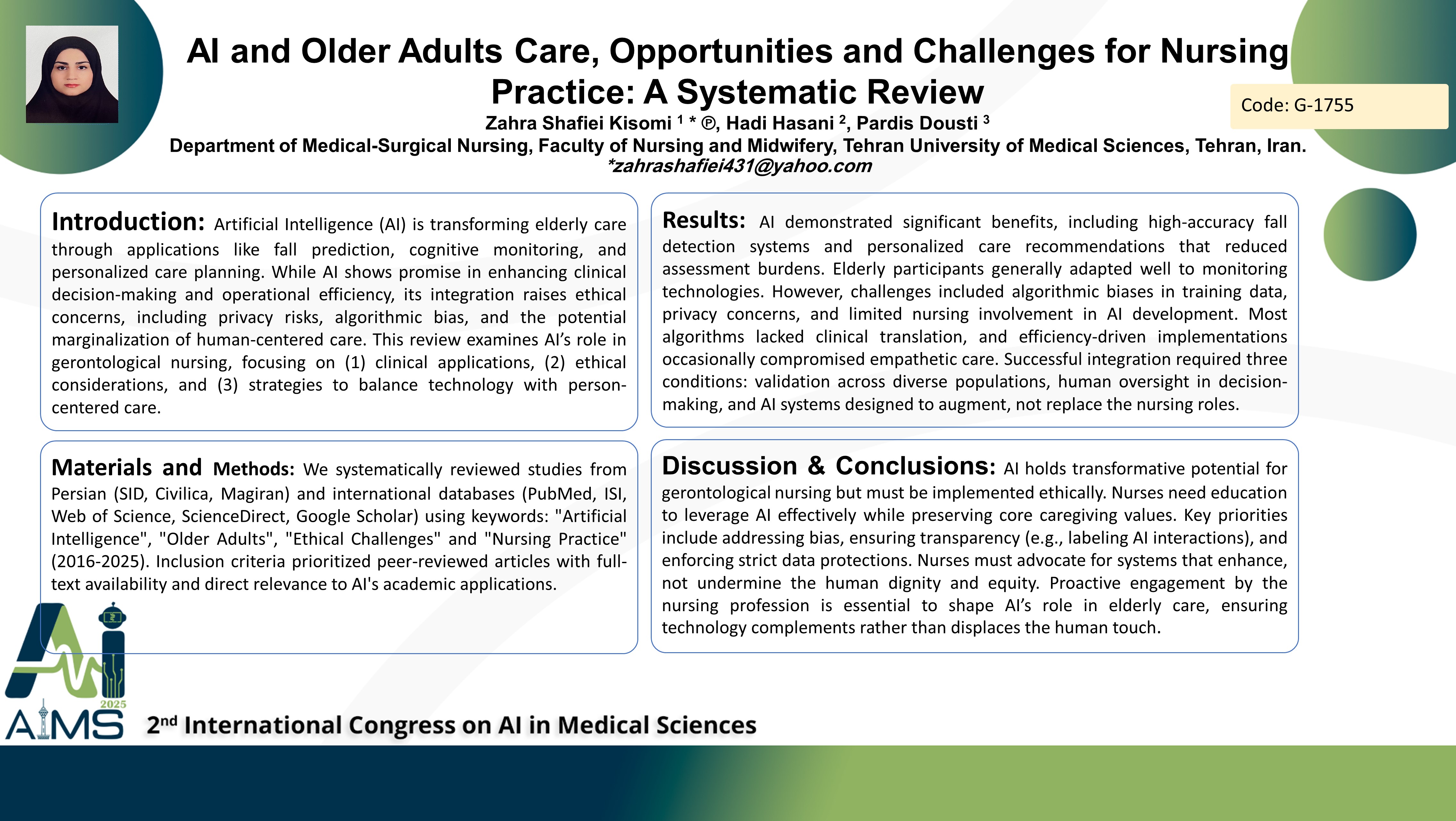AI and Older Adults Care, Opportunities and Challenges for Nursing Practice: A Systematic Review
Code: G-1755
Authors: Zahra Shafiei Kisomi * ℗, Hadi Hasani, Pardis Dousti
Schedule: Not Scheduled!
Tag: Intelligent Virtual Assistant
Download: Download Poster
Abstract:
Abstract
Background and Aim: Artificial Intelligence (AI) is transforming elderly care through applications like fall prediction, cognitive monitoring, and personalized care planning. While AI shows promise in enhancing clinical decision-making and operational efficiency, its integration raises ethical concerns, including privacy risks, algorithmic bias, and the potential marginalization of human-centered care. This review examines AI’s role in gerontological nursing, focusing on (1) clinical applications, (2) ethical considerations, and (3) strategies to balance technology with person-centered care. Methods and Materials: We systematically reviewed studies from Persian (SID, Civilica, Magiran) and international databases (PubMed, ISI, Web of Science, ScienceDirect, Google Scholar) using keywords: "Artificial Intelligence", "Older Adults", "Ethical Challenges" and "Nursing Practice" (2016-2025). Inclusion criteria prioritized peer-reviewed articles with full-text availability and direct relevance to AI's academic applications. Results: AI demonstrated significant benefits, including high-accuracy fall detection systems and personalized care recommendations that reduced assessment burdens. Elderly participants generally adapted well to monitoring technologies. However, challenges included algorithmic biases in training data, privacy concerns, and limited nursing involvement in AI development. Most algorithms lacked clinical translation, and efficiency-driven implementations occasionally compromised empathetic care. Successful integration required three conditions: validation across diverse populations, human oversight in decision-making, and AI systems designed to augment—not replace—nursing roles. Conclusion: AI holds transformative potential for gerontological nursing but must be implemented ethically. Nurses need education to leverage AI effectively while preserving core caregiving values. Key priorities include addressing bias, ensuring transparency (e.g., labeling AI interactions), and enforcing strict data protections. Nurses must advocate for systems that enhance, not undermine the human dignity and equity. Proactive engagement by the nursing profession is essential to shape AI’s role in elderly care, ensuring technology complements rather than displaces the human touch.
Keywords
Artificial Intelligence, Older Adults, Nursing Practice
